Gaza, once again faced with the challenge of reconstruction
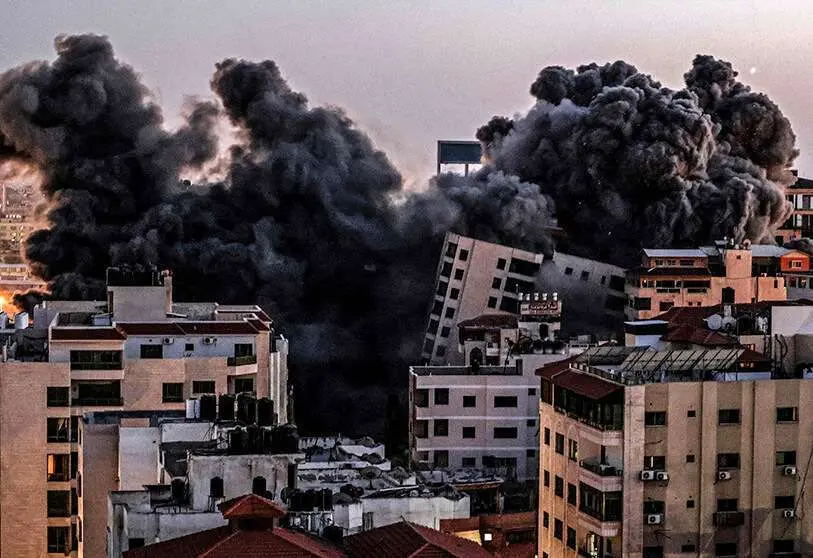
The ceasefire decreed on Sunday, after the worst escalation of violence between Palestine and Israel since May 2021, puts the difficulties of rebuilding the Gaza Strip back on the table. "The latest aggression left 18 homes completely destroyed, 71 partially destroyed, uninhabitable, and 1,675 partially damaged, but still habitable," said Deputy Minister of the Ministry of Public Works and Housing Naji Sarhan during a press conference in Gaza.
This was compounded by a shortage of fuel to keep the region's only power plant running, which stopped operating on Saturday and was unable to restart until Israel reopened the territory's land connections on Monday, allowing trucks loaded with fuel to enter the Gaza Strip. "About 30 truckloads of fuel are expected to arrive at the power company during the day," said Bassam Ghabin, director of the Palestinian side of the Kerem Shalom crossing.
"Restrictions will continue to be gradually lifted as the situation is assessed," the Israeli army said.
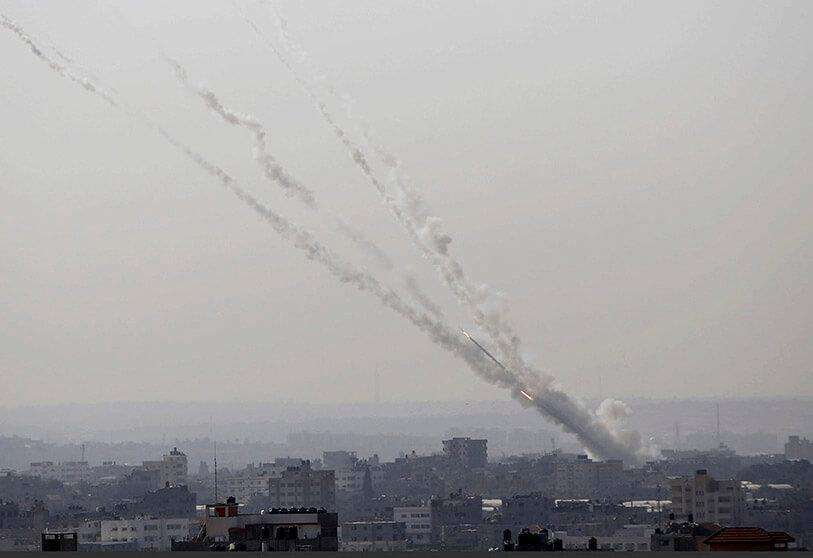
Now, Gazans are beginning to clear the rubble and search for their belongings in the ruins of clashes that have killed 45 Palestinians and wounded more than 400 in total, 360 of whom live in the Palestinian territory. "We have had three very difficult days," Suhail al-Bawab, a Gazan, told the daily Al-Arab, "People can't take it anymore. We just want to live a dignified life, without a war every six months". According to observers, this only complicates efforts to rebuild the country.
Shortly before the first attacks last Friday, Israeli Defence Minister Benny Gantz declared: "to our enemies, specifically to the leaders of Hamas and Palestinian Islamic Jihad, I would like to say: your time is up". The counter-terrorism operation, dubbed by the Hebrew country as "Operation Dawn", was aimed at "averting an immediate real threat from the Palestinian Islamic Jihad (PIJ) in Gaza, a tentacle of Iran, which was intended to kill innocent Israeli citizens".
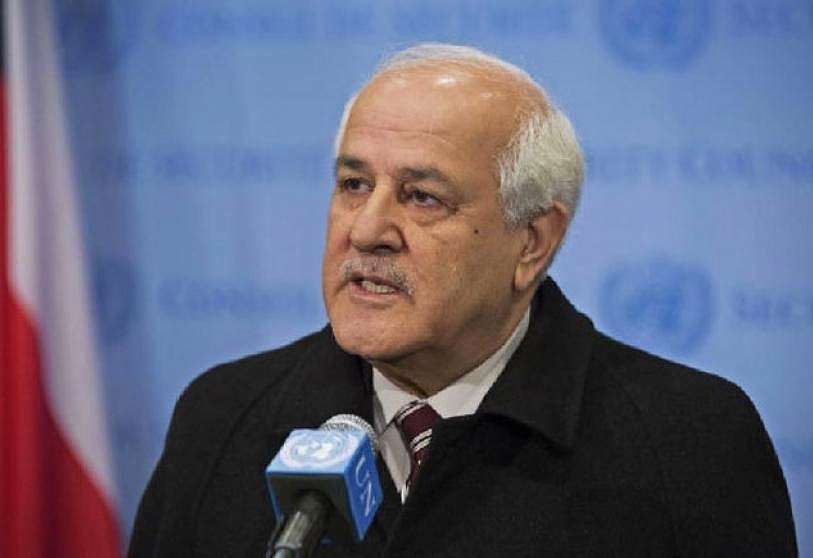
In this sense, the results of Operation Dawn would have more than fulfilled its original purpose. Since last Friday, Hebrew forces have announced the killing of Tayseer al-Jabari, the organisation's number two, Khaled Mansur, leader of the southern command of the PIJ's armed wing in Gaza, and Ibrahim Nabulsi, a commander of the Al Aqsa Martyrs Brigades - the armed wing of the Fatah political movement - during a raid in the city of Nablus a few hours ago.
However, the large number of dead and wounded in the offensive has led the Palestinian population to describe Operation Dawn as the "Awakening of Dawn". The re-escalation of Israeli-Palestinian violence after 15 months of truce.
The Palestinian ambassador to the UN, Riyad Mansour, for his part, has accused the Israeli side of initiating the attacks - which he described as "unprovoked and unjustified" - with electoral interests. "Its real reason is barely contemplated: the upcoming Israeli elections and the desperation to get closer and appease the extremists," he denounced.
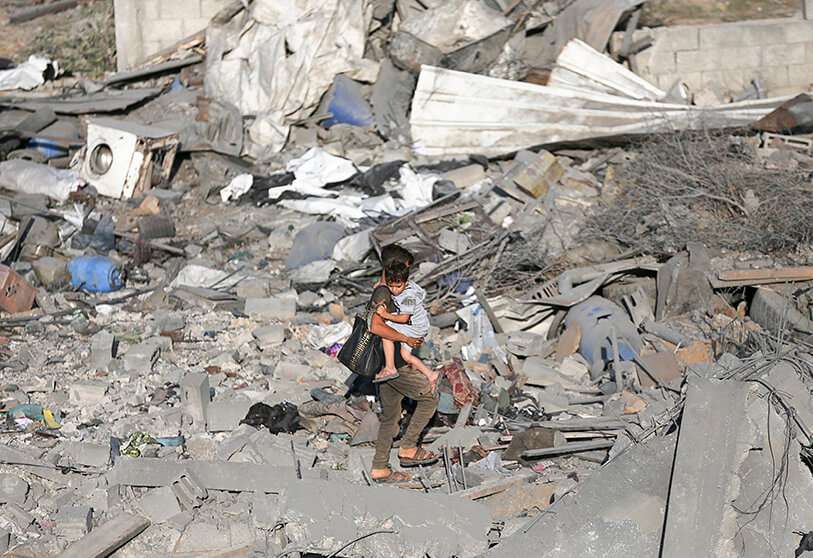
Operation Dawn has been perceived by 58% of Israelis as "a success". A climate of opinion that has also been transferred to the polls, with a view to the elections scheduled for 1 November, where Yair Lapid, the current acting prime minister, will fight to renew his mandate.
According to the latest polls published by several Israeli channels, the operation has consolidated Yair Lapid as the leading candidate in these elections, ousting the opposition bloc headed by the former prime minister, Benjamin Netanyahu, who has lost the majority of 62 MPs that previous polls had predicted. However, this situation still does not facilitate the government of the Yesh Atid party (led by Lapid), as it still needs a broad coalition of parties to regain power.
Against this backdrop, the reconstruction processes in the Gaza Strip - led by Egypt, with the recent construction of a nearly 2 kilometre-long road north of the city - have been profoundly hampered by this escalation of violence. The economic and living conditions of more than two million Palestinians have been severely deteriorated by the continued fighting between the parties over the past 15 years.
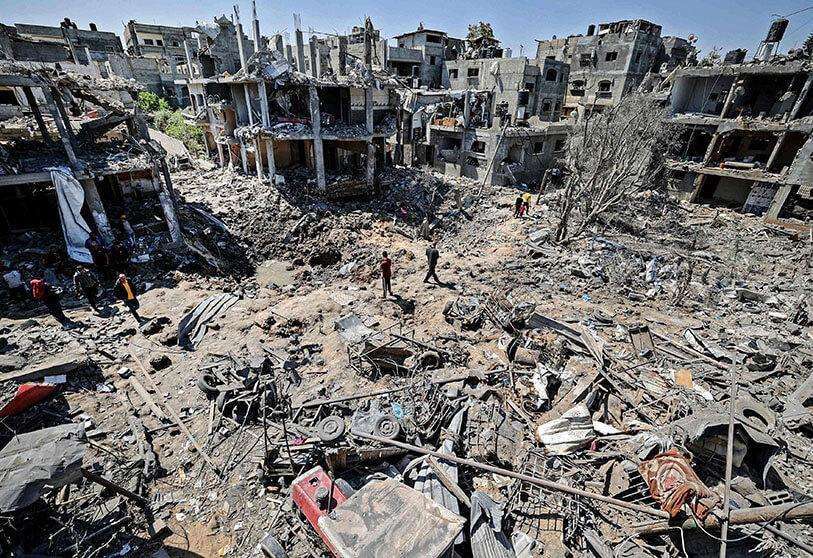
To this day, Gaza is still coping with the consequences of the 11-day war fought in May last year. A clash that killed more than 250 Palestinians and resulted in 2,200 homes damaged or destroyed. "The cost of rebuilding these homes is estimated at around $100 million," explained Gaza's deputy housing minister, Naji Sarhan, at the time.
In response, the now Prime Minister Yair Lapid presented the 'Economy in Exchange for Security' initiative. A two-phase plan that, although not negotiated with Hamas, envisages a first process of 'repairing power lines, connecting gas and building a water desalination plant' in Gaza, to end restrictions of some 12 hours a day on electricity, and shortages of drinking water. Secondly, a port and "a road link" between Gaza and the West Bank would be built, as well as a new industrial zone.
In return, the Hamas Islamists would have to commit to "calm for an extended period of time", otherwise, according to Lapid, "violence would be stronger than in the past".








